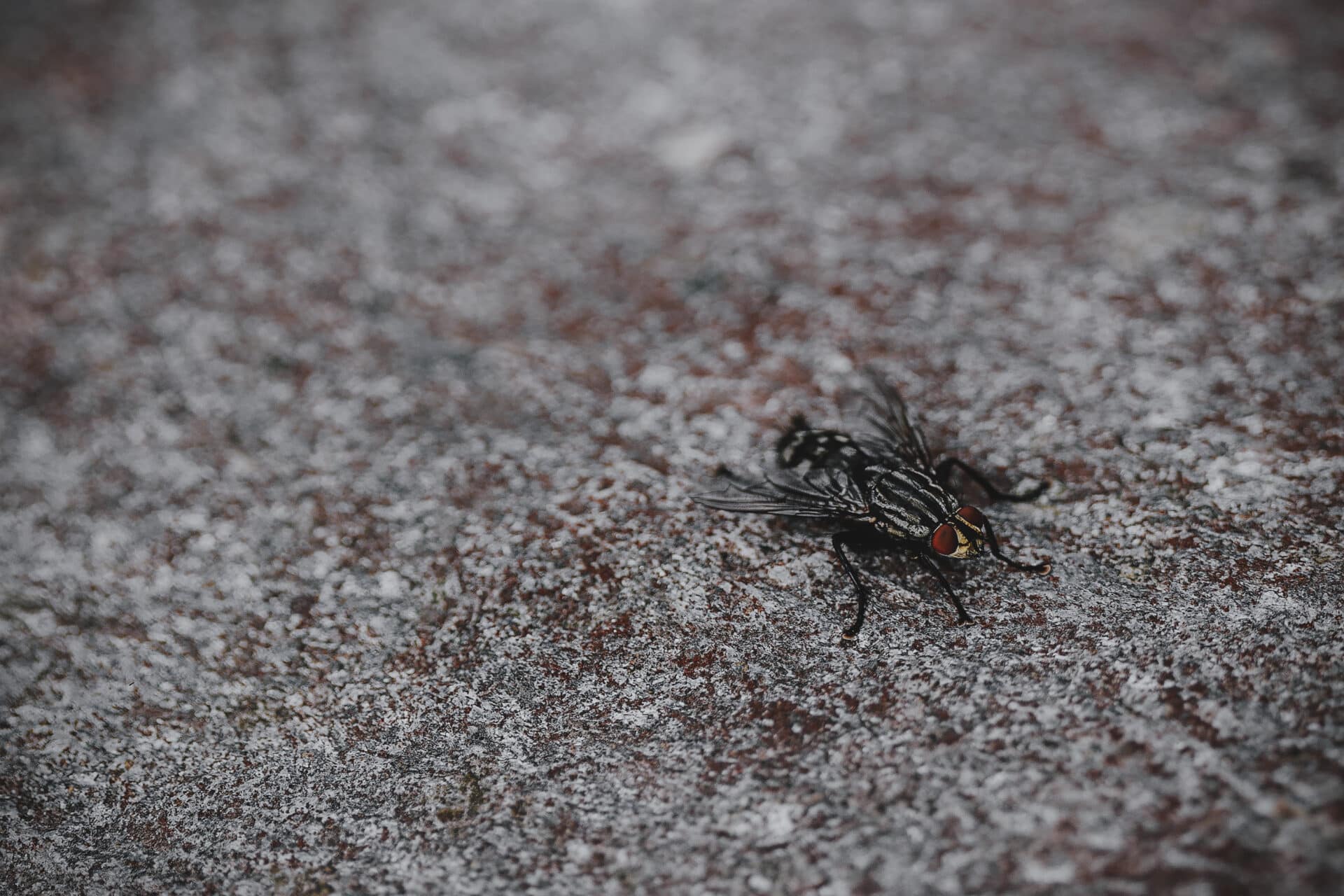Fruit flies are a nuisance in many households, and pest control can be an effective way to get rid of them. By understanding the different types of control options available, you can choose the best approach to rid your home of fruit flies and prevent them from returning. In this article, we will discuss how pest control can help eliminate fruit flies and what methods are available for doing so.Pest Control is the regulation or management of a species defined as a pest, a member of the animal kingdom that impacts adversely on human activities. The human response depends on the importance of the damage done, and will range from tolerance, through deterrence and management, to attempts to completely eradicate the pest. Pest control measures may be performed as part of an integrated pest management strategy.
Fruit Flies
Fruit flies are small, flying insects which are found near overripe fruits or vegetables. They are a type of fly known as Drosophila melanogaster and are commonly referred to as vinegar flies. These flies usually measure between 1 and 5 millimeters in length and have red eyes. Fruit flies feed on various types of decaying fruits, vegetables, and other organic materials, as well as the liquid sugars from fermented fruits and grains. They can be an annoying household pest when they find their way into homes.
Fruit flies reproduce quickly, laying eggs in decaying organic matter such as fruit or vegetable peels. The eggs hatch within 24 hours of being laid and the larvae feed on the organic matter until they mature into adults. Adult fruit flies can live for up to 30 days and lay up to 500 eggs during that time. As a result, populations can quickly become large if left unchecked.
Insecticides can be used to get rid of existing populations, but it is important to take preventive measures to stop future infestations. Keeping all fruits and vegetables stored properly in sealed containers or refrigerators will help prevent fruit fly infestations in the home. Additionally, thoroughly cleaning all areas where rotting food may be present will help reduce the chances of an infestation occurring.
Fruit Fly Infestations
Fruit fly infestations can be an incredibly frustrating problem for homeowners. If a fruit fly population is left uncontrolled, it can quickly grow to become a major pest issue in the home. Fruit flies are attracted to sweet, rotting fruits and vegetables and can reproduce quickly, leading to an infestation in just a few days. Not only are these pesky insects annoying, but they can contaminate food and spread diseases as well.
Pest Control Help
Fortunately, there are ways to control and prevent fruit fly infestations. Pest control professionals have the knowledge and experience to identify the source of the fruit fly problem and provide effective solutions for getting rid of them. Professional pest control services can employ targeted treatments such as baiting or trapping methods that will help reduce the number of pests in your home. Additionally, pest control technicians will be able to identify potential areas where fruit flies may be breeding or entering your home so that those entry points can be sealed off or treated with insecticides to prevent further infestations.
In some cases, professional pest control services may also recommend other measures such as sanitation changes or eliminating sources of food and water that attract fruit flies. By taking preventive measures such as these, homeowners can prevent future infestations from occurring in their homes.
Overall, professional pest control services offer an effective solution for dealing with fruit fly infestations in the home. By employing targeted treatments and preventive measures, homeowners can get rid of existing pests while also preventing future infestations from occurring.
How to Identify a Fruit Fly Infestation?
Fruit fly infestations can be difficult to identify, as the small insects can be hard to spot. Some signs of a fruit fly infestation include finding small black or brown flies hovering around fruits and vegetables, or around areas where food has been stored. You may also find clusters of tiny, white eggs or larvae on the surface of the food. Additionally, you may notice a musty smell coming from the affected area. If you do identify any of these signs of an infestation, it is important to take action quickly to prevent further spread.
Fruit flies are attracted to ripened produce and decaying organic matter, so it is important to inspect any fruits and vegetables before bringing them into your home. Additionally, make sure that all food items are stored in sealed containers and areas that are not easily accessible by pests. Regularly cleaning surfaces with warm water and soap can help reduce the risk of an infestation as well.
If you do find evidence of an infestation in your home, there are several methods you can use to get rid of fruit flies. Setting out traps containing apple cider vinegar or other attractants is one way to lure the flies away from your food sources and into the traps. Alternatively, insecticides such as pyrethrins and spinosad can be used for more serious infestations, though these should be used with caution as they can be toxic for humans and pets if not used properly.
Effective Ways to Get Rid Of Fruit Flies
Fruit flies are a common problem in many homes. They can be difficult to control and can quickly become a nuisance. Fortunately, there are some effective ways to get rid of fruit flies and keep them from coming back.
One of the most effective ways to get rid of fruit flies is to prevent their infestation in the first place. Keep your kitchen clean and make sure all food is stored properly. Clean up any spilled juices or food quickly and regularly empty your kitchen trash can.
If you already have an infestation, you’ll need to take additional steps to get rid of the fruit flies. The easiest way is to use a store-bought fly trap. These traps attract the fruit flies with a sweet-smelling bait, then trap them inside so they can’t escape.
You can also make your own DIY fly traps using items like plastic bottles or jars filled with soapy water or vinegar and sugar solutions. Place the trap near where you see the fruit flies, and they should be attracted to it and eventually drown inside it.
Another way to get rid of fruit flies is by using plant-based insecticides such as neem oil or pyrethrin sprays. These sprays are safe for humans and pets, but they will kill any insects that come into contact with them, including fruit flies. Just be sure to use these sprays according to the instructions on the label for best results.
Finally, if the infestation is particularly severe, it may be necessary to call in a professional pest control service for help getting rid of the fruit flies. The pest control company will be able to identify where the infestation is coming from and recommend further steps for getting rid of them permanently.
No matter what method you choose, it’s important that you act quickly when dealing with a fruit fly infestation; otherwise, they could spread throughout your home before you know it! With proper prevention and timely treatment, however, you should be able to get rid of these pests easily enough without too much trouble.

How to Use Pesticides for Fruit Fly Control?
Pesticides can be an effective way to control fruit flies, but should only be used as a last resort. When using pesticides, it is important to follow all directions and safety precautions given on the label. Before applying any pesticide, it is important to identify the type of fruit fly present in order to select the most effective product.
Once the appropriate pesticide is selected, it should be applied according to the label instructions. Generally, this will involve mixing the pesticide with water and then spraying or dusting the solution onto the affected plants. It is best to apply pesticides in the evening or early morning when temperatures are cooler and when fewer beneficial insects are active. Following application, it is important to monitor for any signs of pest resurgence.
In addition to following label instructions, there are a few other precautions that should be taken when using pesticides for fruit fly control. First, try not to spray during windy conditions as this may cause drift of the pesticide onto non-target areas. Second, always wear protective clothing such as long sleeves and gloves when applying pesticides. Finally, make sure that any unused pesticide is stored away from children and pets in a secure area.
By following these guidelines for using pesticides for fruit fly control, pest populations can be kept under control while minimizing potential harm to beneficial insects and other non-target organisms.
Natural Remedies to Get Rid of Fruit Flies
Fruit flies are one of the most annoying pests that can invade your kitchen. Not only are they a nuisance, but they can also carry bacteria and other germs that can make you sick. Fortunately, there are several natural remedies you can use to get rid of fruit flies in your kitchen.
The first step in getting rid of fruit flies is to identify the source of their infestation. If you have any fruits or vegetables that have gone bad, throw them away. Make sure to clean up any spills or crumbs as well, as these can attract fruit flies.
Once the source has been identified and removed, there are several natural remedies you can use to get rid of the remaining fruit flies. One popular remedy is to mix equal parts apple cider vinegar and water in a bowl and leave it out overnight. The smell of the vinegar will attract the fruit flies, and they will be trapped in the bowl overnight. In the morning, simply discard the bowl with all the trapped fruit flies.
Another natural remedy is to use a mixture of dish soap and water in a bowl or jar. The soap helps break down the surface tension on the surface of the water so that when a fruit fly lands on it they become stuck and unable to escape.
You can also try placing cloves or strips of citrus rind near where you’ve noticed fruit fly activity – this will help repel them as they don’t like citrus scents. Finally, try placing some basil around your kitchen – like cloves and citrus rinds, basil has a strong scent that repels fruit flies naturally.
By using these natural remedies, you should be able to get rid of any pesky fruit fly infestations quickly and easily without having to resort to chemical sprays or traps!
Preventing a Future Fruit Fly Infestation
One of the most effective ways to prevent a future fruit fly infestation is to keep your kitchen and dining areas clean. Wipe down countertops and tables after meals and clear away any food scraps or spills. Make sure all food items are stored in airtight containers or sealed plastic bags. If you have any fruit or vegetables in your kitchen, make sure they are properly refrigerated. Additionally, check for any signs of rot and discard any that show signs of infestation.
It’s also important to regularly inspect areas where fruit flies may be breeding, such as drains, garbage disposals, and garbage cans. Make sure these areas are kept free of debris and that all drains are unclogged. Additionally, empty out the garbage cans regularly and use lids or tight-fitting covers to keep fruit flies from entering them.
Finally, use natural methods of pest control whenever possible. Citrus oils such as lemon or orange oil can be used to deter fruit flies from entering certain areas of the home. Vinegar can also be used as an effective repellent for certain types of insects, including fruit flies. Additionally, you can try using traps made from common household items like apple cider vinegar, sugar water, and dish soap to catch the pests before they enter your home.

Conclusion
Fruit flies are a common household pest that can be difficult to get rid of. Professional pest control services can help you get rid of fruit flies quickly and effectively by using targeted treatments and providing ongoing control measures. While DIY methods may be effective in some cases, professional services provide the most reliable and long-lasting results.
The best way to prevent fruit fly infestations in the first place is to keep your home clean and free of food sources that attract them. Regularly discarding any produce that has begun to rot, cleaning up spills or messes right away, and keeping counters and surfaces free of food debris will help reduce the chances of an infestation occurring in the first place.
In conclusion, while there is no single method for getting rid of fruit flies, an integrated approach using both professional pest control services and regular home maintenance is the best way to ensure long-term protection from these pesky pests.



